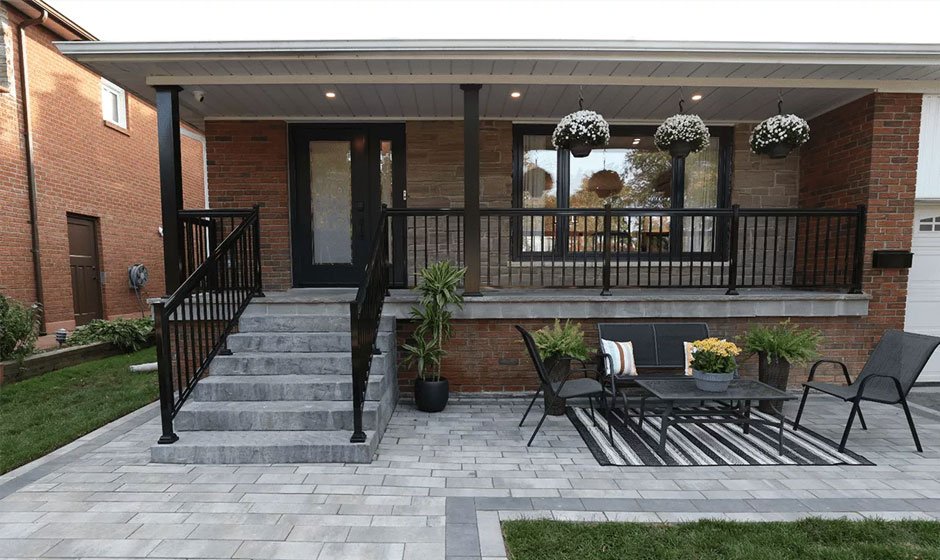Homeowners often undertake renovation projects to enhance their living spaces and increase the value of their properties. However, not all house renovations in Sydney are created equal regarding adding value. Understanding which improvements yield the most significant return on investment (ROI) is crucial for making informed decisions when renovating a house. We will explore the factors that contribute most to a house’s value when renovating, including kitchen and bathroom upgrades, energy-efficient improvements, curb appeal enhancements, and the importance of maintaining a functional and well-maintained home.
Factors that contribute most to a house’s value when renovating
1. Kitchen Upgrades
The kitchen is often regarded as the heart of the home, and it’s no surprise that kitchen upgrades can add substantial value to a house. A modern and well-designed kitchen can significantly enhance a home’s appeal to conceivable buyers. When renovating the kitchen, concentrate on key elements such as countertops, cabinetry, appliances, and lighting. Upgrading to granite or quartz countertops, installing new, stylish cabinets with ample storage, and investing in energy-efficient appliances are popular. Additionally, an open-concept kitchen layout that facilitates flow and functionality can be particularly appealing to today’s homebuyers.
2. Bathroom Renovations
Bathroom renovations are another high-impact project that can add significant value to a home. Like kitchens, updated bathrooms are appealing to buyers and improve the overall quality of living for homeowners. When renovating bathrooms, consider upgrading fixtures, tiles, vanities, and modern amenities like heated floors or a luxurious shower.A common inquiry in renovation projects is updating vanity drawers as they enhance the overall look and functionality of the space, and they are often easy updates that homeowners can do by themselves. Furthermore, increasing the number of bathrooms in a home, such as converting a half-bath to a full bath or adding an ensuite bathroom to a bedroom, can substantially boost a property’s value and marketability.
3. Energy-Efficient Improvements
With growing awareness of environmental concerns and rising utility costs, energy-efficient improvements have gained significance in home renovations. Installing energy-efficient windows, doors, and insulation not only reduces energy consumption but also adds value to a house. Homebuyers often appreciate the long-term cost savings and comfort of an energy-efficient home. Other energy-efficient upgrades, such as LED lighting, programmable thermostats, and solar panels, can further enhance a property’s value while reducing monthly utility bills. Additionally, energy-efficient renovations may make homeowners eligible for tax incentives or rebates, providing an additional financial benefit.
4. Curb Appeal Enhancements
First impressions matter when selling a home, and curb appeal plays a significant role in attracting potential buyers. Exterior renovations and landscaping improvements can substantially add value to a property. Consider repainting the exterior, replacing the roof, upgrading the front door, or adding new siding. Landscaping improvements, including manicured lawns, well-designed gardens, and outdoor living spaces, can create an inviting atmosphere and increase a home’s market value. Well-maintained outdoor areas often contribute to the overall perception of a property’s quality and desirability.
5. Functional and Well-Maintained Home
While the allure of stylish upgrades is undeniable, it’s essential to pay attention to the value of maintaining a functional and well-maintained home. Ensuring that the fundamental aspects of a property, such as the plumbing, electrical systems, and foundation, are in good condition is crucial. Addressing any structural issues, repairing leaks, and conducting regular maintenance not only prevents potential problems but also maintains the property’s value. A well-maintained home gives buyers confidence in its long-term durability and reduces the likelihood of costly surprises after purchase.
6. Additional Living Space
Expanding a home’s living space can be a significant value booster. Homeowners can consider adding an extra bedroom, finishing a basement, or constructing an attic conversion. These additions not only increase the square footage but also offer versatility in how the space can be used, such as a guest room, home office, or entertainment area. The added living space can appeal to more buyers and justify a higher asking price. However, it’s essential to ensure that any additions comply with local building codes and obtain the necessary permits to avoid potential legal complications.
7. Smart Home Technology
The integration of smart home technology is becoming increasingly desirable to homebuyers. Renovations incorporating smart home features, such as security systems, thermostats, lighting, and entertainment systems, can significantly enhance a property’s appeal and perceived value. Smart home technology not only offers convenience and security but also positions a home as modern and up-to-date, attracting tech-savvy buyers. Furthermore, it can be a differentiating factor in a competitive real estate market, allowing a property to stand out among similar listings.
8. Historic and Architectural Preservation
In some cases, preserving the historical or architectural character of a home can add substantial value. Renovations that honor the original design, such as restoring hardwood floors, crown molding, or historic facades, can attract buyers seeking a unique and authentic living experience. Maintaining historical integrity while incorporating modern amenities can create a harmonious blend of old-world charm and contemporary comfort. This approach can be particularly appealing in neighborhoods with a strong historical identity.
When renovating a house, it’s crucial to focus on the elements that add the most value to the property. Kitchen and bathroom upgrades, energy-efficient improvements, curb appeal enhancements, well-maintained fundamentals, additional living space, smart home technology, and historic preservation are all significant contributors to a home’s value. Ultimately, the key to a successful renovation is a thoughtful and well-planned approach that aligns with market trends and the preferences of potential buyers. By making knowledgeable decisions and investing in renovations that propose the highest ROI, homeowners can maximize the value of their properties and enjoy the benefits of an improved living space.

